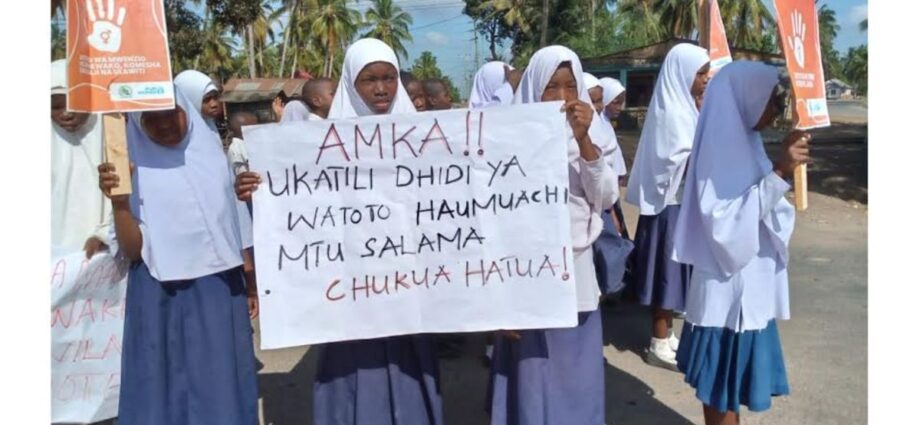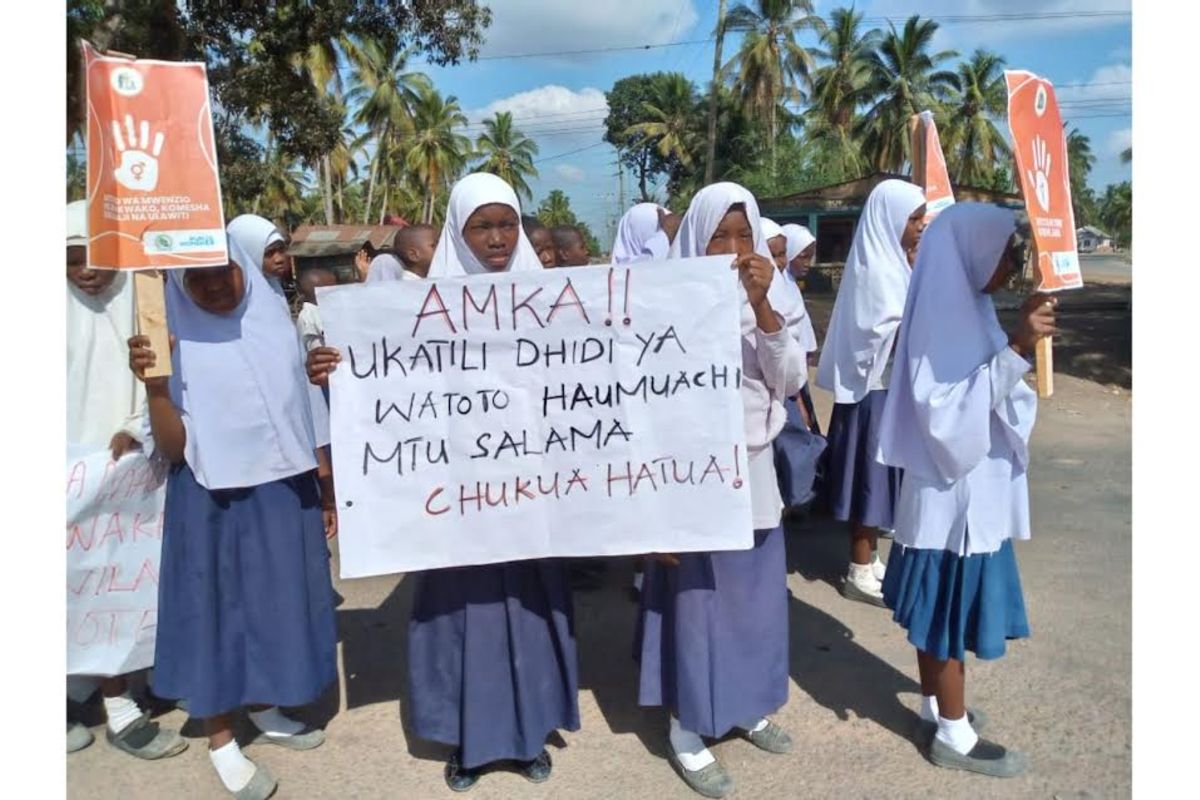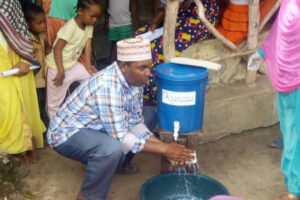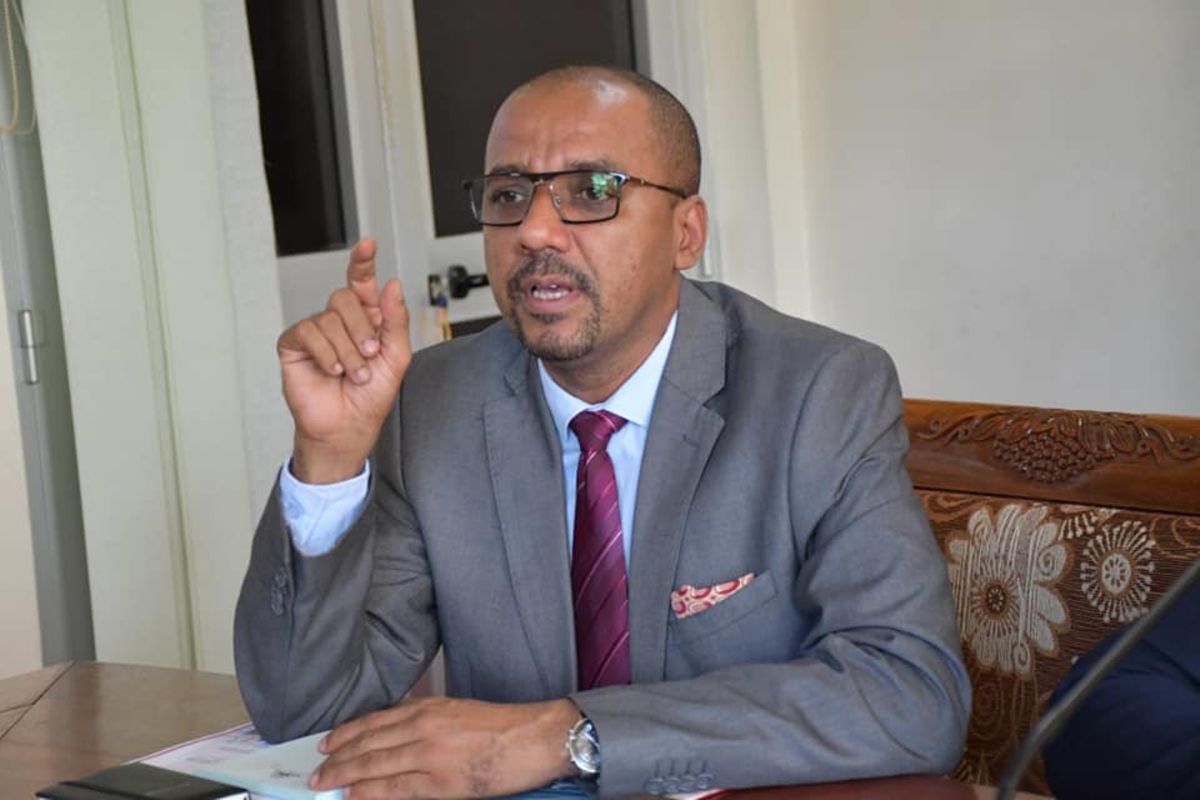Dar es Salaam. In the quiet corners of Tanzania’s rural areas, where the sunsets paint the sky in hues of orange and red, lies a silent struggle many women face but rarely report.
Instead, they get used to it, accepting it as part of life. Behind closed doors, away from prying eyes, they endure a reality that no one should ever have to experience.
This is the harsh truth of gender-based violence, a pervasive issue that plagues our society, lurking in the shadows of normalcy.
According to UNICEF, 38 percent of girls and women have experienced some form of violence by a partner in the past year.
Shockingly, a third of those who experienced violence never sought help; 11 percent told someone but did not seek help, and only 54 percent sought assistance related to the experienced violence.
A resident of Tarime, Ghati Marwa, 29, says that after getting married to his husband, in 2016, he started beating her from time to time, but she just thought it was a part of marriage challenges.
“I used to endure the abuse silently, thinking it was my fate and that speaking out would only bring more harm instead of solving the problem, even my mother advised me not to tell anyone about such an issue, which I accepted,” she shares.
She adds: “It is not normal for a woman to come out and say what her husband did to her last night in our society. We were taught to stay silent and not share about the weaknesses of our husband.”
For her part, Nyandaro Mkama, 38, a resident of Chumwi, Musoma-Rural District of Mara Region, shares that her dreams were shattered by the hands of abuse without even opening her mouth to reveal what is going on in her life.
“For years, (since 2021) I suffered in silence, afraid to speak out and face the consequences. But remaining silent only allowed the abuse to continue. For now, I’m just thinking of reporting him to the gender desk so that other processes can follow, but if he will stop such evil behaviour, I’ll change my mind,” she confides, her voice trembling with emotion.
With similar sentiments of pain and resilience, a resident of Mbogwe District of Geita, Neema Philimon, 46, reveals. “I never used to report the incidents, fearing backlash and stigma from my community. It became a part of my daily life, and I convinced myself that I had to endure it,” she asserts.
She continues: “It took me a long time to realise that staying silent only perpetuated the cycle of abuse, as I have been hearing experts explain the impact of staying quiet and accepting violence, on radio programmes. Now, I refuse to be silent any longer,” Neema admits.
She adds: “For too long, I suffered in silence, but now I refuse to let fear dictate my life.”
Yunisi Kiraryo, 34, a resident of Tarime reveals that she used to think that keeping quiet while finding a solution was the best option.
“Now I understand the importance of speaking out and seeking help as he already broke my left leg, I know that if I reported him earlier it could not have reached this level.”
These stories paint a grim picture of the reality faced by many women in Tanzania, especially in rural areas. Behind the veil of tradition and cultural norms, lies a dark truth that must be brought to light.
Gender desk officer at Musoma Rural District Council, Ms Maimuna Munanka says gender desks have been helping different women by educating them so that they can know the importance of speaking up on GBV incidents.
“Our goal is to break the cycle of violence and empower survivors to reclaim their lives, but it’s hard to achieve that if the victims hide the criminals and choose suffering over their wellbeing, more efforts on education about GBV are still needed, especially in rural areas,” she says.
She continues: “Through counselling, legal support, and community outreach, we strive to create a safe space for survivors to heal and seek justice.”
A psychologist from Saint Augustine University of Tanzania (SAUT), Fr Leons Maziku reveals that the normalisation of gender-based violence perpetuates a cycle of trauma and silence.
“Victims internalise the belief that speaking out will only lead to further harm, leading to feelings of helplessness and isolation,” she says.
She continues: “This silence becomes a barrier to healing, as survivors are deprived of the support and validation, they need to begin their journey towards recovery. Without intervention, the psychological scars of abuse can endure for a lifetime, impacting every aspect of a survivor’s well-being.”
On the other hand, a sociologist and assistant lecturer at the University of Dar es Salaam (Udsm), Mr Elisha Elibariki says victims are normalising violence instead of reporting it to mark the end of it.
“It appears like heritage for a woman to stay mute in all such situations, and they are even trained by elders to do so before being married, which makes them think and feel that it is proper to stay silent rather than screaming ‘save me’,” he said.
He shares that women need to be educated so that, by speaking out and seeking help, survivors can reclaim their power and break free from the cycle of abuse.
“It’s crucial to create a supportive environment where survivors feel empowered to share their stories and access the support they deserve,” he says.
The minister for Community Development, Gender, Women, and Special Groups, Dr Doroth Gwajima says that people should break the silence and report the perpetrators of the GBV incidents as a support to the country in a war against GBV.
“People of both genders should not keep violence as one of the secrets in marriage because of the impact it brings to society. Reporting violent incidents helps the government and legal authorities take proper action as part of reducing and eradicating GBV in our country,” she explains.
The story has been written with the support of the Bill and Melinda Gates Foundation.















